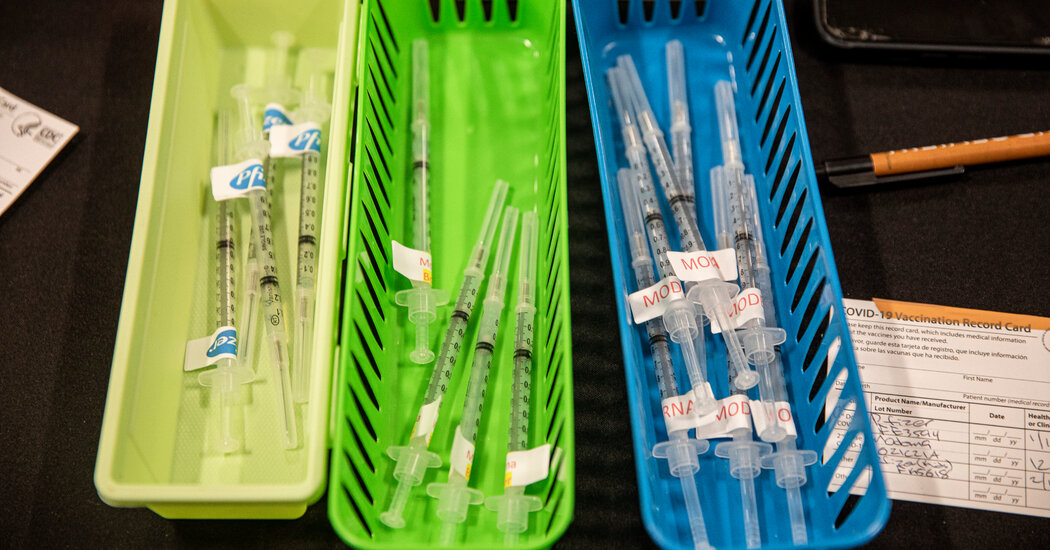
Some people with a weakened immune system can get a fourth dose of the coronavirus vaccine as early as this coming week, according to recommendations from the Centers for Disease Control and Prevention that were updated last week.
The C.D.C. endorsed a third dose of the Pfizer-BioNTech and Moderna vaccines for moderately or severely immunocompromised people on Aug. 13, but said this would be considered a part of the primary immunization, not a booster shot.
In October, the agency said those immunocompromised people could receive a booster shot — a fourth dose of vaccine, six months after their third dose. These guidelines were consistent with its recommendation for other adults.
Last week, hoping to stem the surge of infections with the highly contagious Omicron variant, the C.D.C. shortened that interval to five months for a booster shot for Pfizer-BioNTech or Moderna recipients.
For immunocompromised people who received a single shot of the coronavirus vaccine made by Johnson & Johnson, the C.D.C. does not recommend additional primary doses, but advises that they get a booster shot of the Moderna or Pfizer-BioNTech vaccines two months after the first dose.
Some people are born with absent or faulty immune systems, and in others, treatments for some diseases like cancer diminish the potency of immune defenses. The C.D.C. estimates there are about seven million immunocompromised individuals in the country.
Many of them produce few to no antibodies in response to a vaccine or an infection, leaving them susceptible to the virus. When they do become infected, they may suffer prolonged illness, with death rates as high as 55 percent.
It is unclear what proportion of those people are protected by additional doses. Still, with the Omicron variant surging in the country, some immunocompromised people sought out fourth or even fifth shots of the vaccines even before the C.D.C. changed its guidelines. While receiving multiple doses of vaccines in a short period is unlikely to be harmful, it may produce diminishing returns, according to some experts.
The C.D.C. has said that any American 12 and older can receive a Pfizer-BioNTech booster — those 18 and older can alternatively receive a Moderna booster — five months after completing their initial shots with those vaccines. Israel has already begun offering fourth doses to high-risk groups including older adults. But the Biden administration has not yet said whether it plans to follow suit.
When asked on Friday about the possibility of a fourth shot for the general population, Dr. Rochelle Walensky, director of the C.D.C., said that focus remained on Americans eligible for their third shots.
She added that U.S. officials remained in close touch with Israel experts about their data. “We will be following our own data carefully as well, to see how these boosters are working in terms of waning effectiveness, not just for infection but, importantly, for severe disease,” she said.







